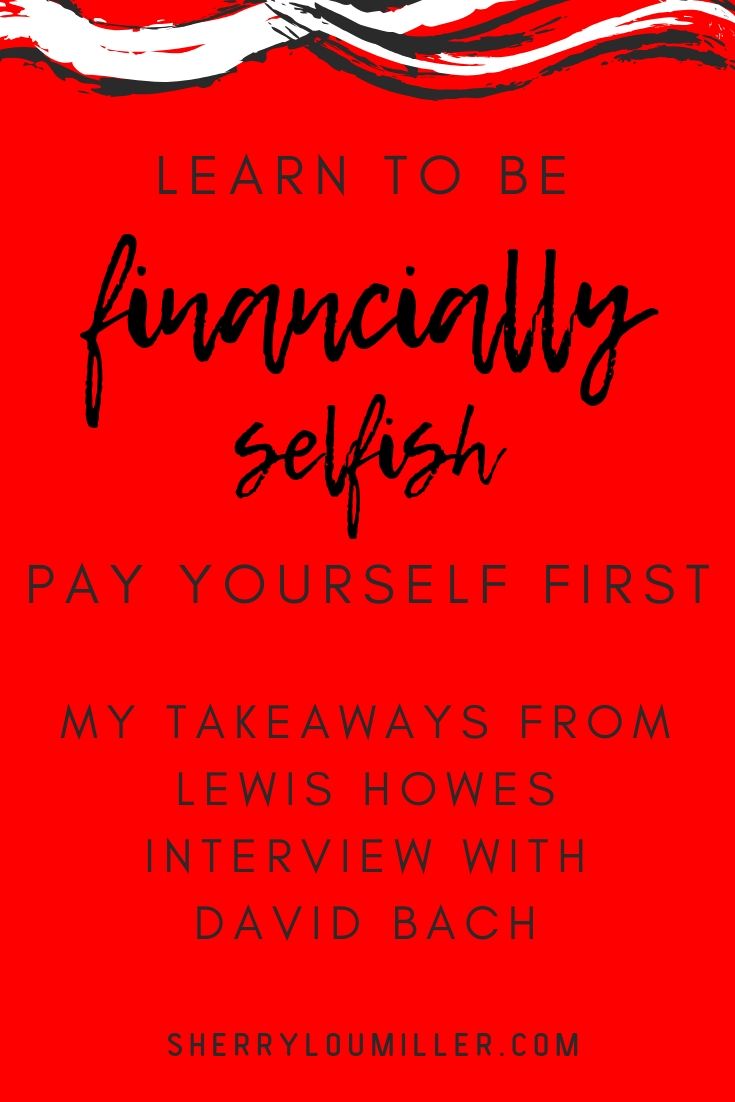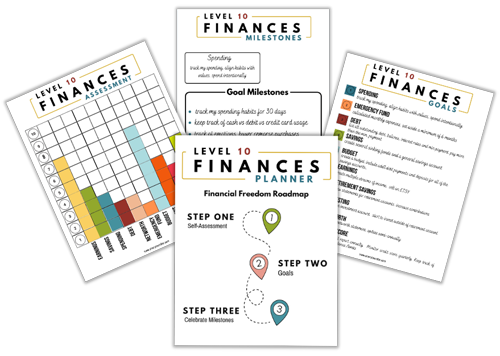The Latte Factor? Do you know yours?
Recently, I was listening to Lewis Howes’ podcast – Be Financially Free and Pay Yourself First with David Bach (episode 791). After listening to this episode, I decided to purchase the book (The Latte Factor) and create a two-part blog series.
The first installment – my takeaways from the podcast.
The second installment – a book review, as well as, how I can apply his principles to my life.
Before I get started, let me say that there is a lot of pertinent financial information in this interview; so, you might want to listen to the interview in its entirety. I’ll post the link at the bottom of this blog post.
Here are my top takeaways:
Takeaway #1 – Two things that people can do at an early age to build wealth; and, how the game of monopoly can help.
According to David, everyone should invest in stocks and real estate at a young age. These are the two primary escalators to wealth.
I enjoyed the fact that he compared this concept to the game of monopoly. I never really thought about it before, but I guess what he says is true.
Go pass go and collect $200. That’s your payday. Land on someone’s property and you are going to have to pay up. And, if the property has a few red and/or green houses, you’re going to be in the high-rent district. LOL
I haven’t played Monopoly in years, but I always enjoyed it. My goal was to get the railroads, park place and boardwalk. There were some other promising properties too, but those are the ones that I remember.
Since board games are making a comeback, I may have to play with my grandson. It’s time to teach him a few life lessons and money lessons.
The moral of the story – monopoly provides “a great lesson for all of us for life. You have to own assets that make money while you sleep”.
TakeAway #2 – Grandma’s Mindset about Building Wealth Changes His Family’s Legacy
I think this part of the interview hit home with me because I have somewhat lived by the same principles.
Let me take a moment to insert my own personal story: The year was 2004 or 2005, and I planned to invest my year-end bonus in a little stock known as NetFlix.
Well, that year, the company didn’t have a profitable year, so we didn’t receive year-end bonuses. At the time, I had an all or nothing approach to investing. Meaning, since I couldn’t invest the dollar amount that I thought would yield a significant return, I didn’t invest at all. I know…that’s ridiculous.
As a result, I didn’t participate at all in the growth of Netflix’ stock. But, it was a lesson learned and I caused me to changed my mindset. I made the choice to start from where I am now.
After that, I started investing my so-called “extra money” in the stock market as opposed to going out to dinner or buying clothes, shoes etc. Whenever I had some extra cash, I would take $100, $200 or $300 and buy some stock.
I’ve done okay with this strategy. Investing these funds as opposed to spending a day at the mall is increasing my net worth.
Now, back to the story of David’s Grandma.
Even though his grandparents didn’t have much (as far as money), his grandmother knew that she wasn’t meant to live a life of scarcity. She was tired of being broke.
The story goes… “she used to literally save 50 cents a week and put it in a coffee can. And at the end of the year she took that coffee can down to a brokerage firm and started investing in stocks.”
No, she wasn’t going to become a millionaire overnight using this investment strategy, but it was a start. It was the start of building wealth. She made a choice to change her mindset toward money/wealth. It was the start of changing her family’s legacy.
David’s grandmother understood that despite her current circumstance, she had to start somewhere.
How many people get a life lesson while visiting McDonald’s restaurant at the age of 7 yrs old? Well, David’s grandmother used a visit to a fast food restaurant as a teachable moment and I simply love the thought of it.
First, she pointed out the employees who were working for minimum wage. She shared her wisdom – it’s hard to make a living on minimum wage. This was true then; and, as the cost of living continues to increase, it’s it more relevant today.
Second, she pointed out his role in the scenario. He, like others in the restaurant, had come to spend their money on a meal. This group would be known as the spenders.
Third, she talked about the people who actually own the fast food restaurant.
Lastly, she took him home and introduced him to the concept of investing where you spend money. In this case, it was McDonald’s stock. Identifying the last group of people – the investors.
I believe that often times we bring our childhood money beliefs into adulthood. So, as a way of minimizing limiting beliefs related to money, I make an effort to have discussions with my children and grandson.
For instance, for the first few years of my grandson’s life, I didn’t buy toys for his birthday and/or Christmas. Instead, I would take the money that I would have used to purchase those items and I would purchase a few shares of stock.
Even though I haven’t had any conversations with my grandson about investing, I have used similar scenarios to teach him the concept of saving vs spending money just because you have it.
The moral of the story: “The way to get your freedom and your dreams is you buy them”. Stop renting your dreams by paying for them with credit cards.
Start from where you are now. Small steps can lead to big results.
TakeWay #3 – Invest In Yourself First. Become Financially Selfish.
“People who try to get rich quick stay broke long.”
David is very adamant about paying yourself first, and that means before you pay your bills.
My suggestion (strictly my suggestion), include yourself as #1 on whatever process you use to pay your bills.
If it’s a budget, first line item. If it’s the envelope system, create an envelope for yourself. On payday, money is distributed to that envelope first.
The power of paying yourself first goes back to the concept mentioned earlier – small steps can lead to big results. When you’re investing, you’re benefiting from the magic of compound interest.
In addition to paying yourself first, you need to take time to figure out what’s your Latte Factor.
Is it the bagel/cream cheese and a coffee every day? Whatever it might be, make a choice today to invest those funds instead.
I’m sure we’ve all heard if you start to save/invest in your 20’s you could potentially become a millionaire by retirement age (late 60s); but, how many of us were really listening? Better yet, how many of us actually did it?
Although the book includes a growth chart, you can google the same information.
My suggestion, based on how much money you will need to maintain your lifestyle, create various scenario for what action you need to take today to meet those goals.
Do you need to increase your 401k contribution or reallocate funds from the Latte Factor to your retirement savings?
Don’t pay the what if game. It doesn’t serve you. Start from where you are. Where do you want to be at some future date? Now, reverse engineer it. What is it going to take to make it happen?
I’ve only covered a few topics from the interview; but, Lewis and David talk about so much more. The interview covers other topics like student loan debt, expensive car payments and the insurance that goes along with it, Rule of 72, Homeownership vs Renting, Investing Apps and Saving for Retirement.
If you’re looking to change your finances, I strongly suggest you set aside an hour or so to listen to this episode.
Next week, I’ll give my thought on the book (The Latte Factor)
Can you identify your “Latte Factor”? How much is it really costing you?





